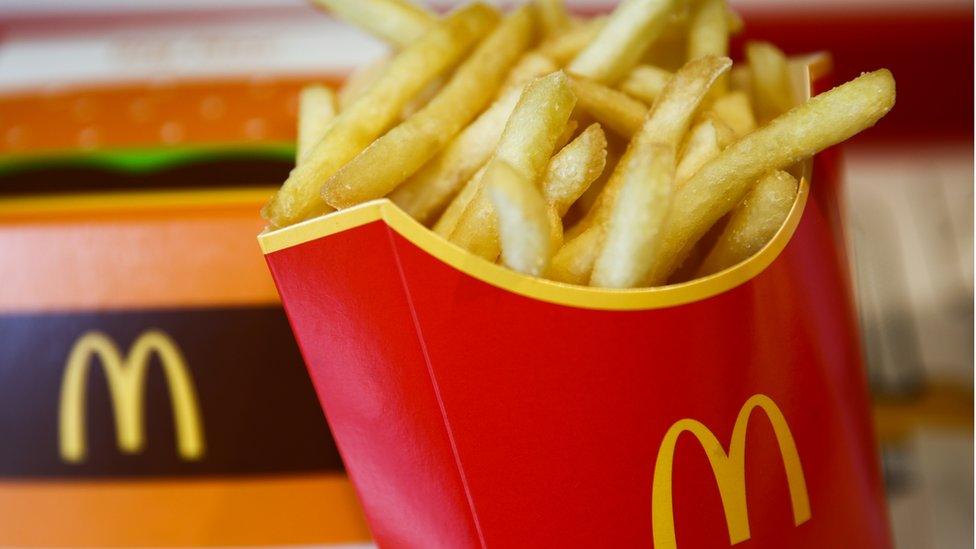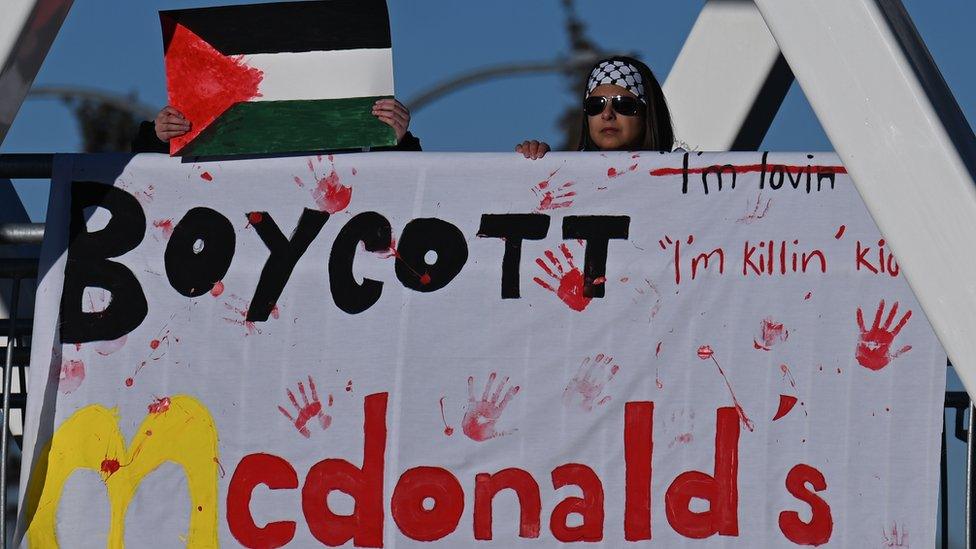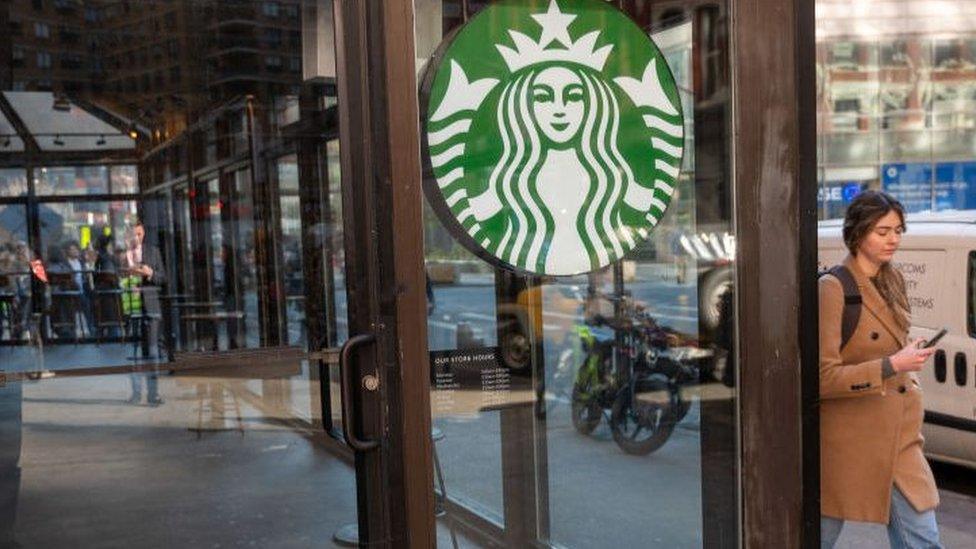McDonald's hit by Israel-Gaza 'misinformation'
- Published

McDonald's said it was seeing a "meaningful" hit to business, as customers in the Middle East and elsewhere boycott the firm for its perceived support of Israel.
Chief executive Chris Kempczinski acknowledged the impact in a LinkedIn post, external, blaming the backlash on "misinformation".
He is the second boss of a major US firm to address the business toll sparked by Israel-Gaza war tension.
Starbucks has also been affected.
"Several markets in the Middle East and some outside the region are experiencing a meaningful business impact due to the war and associated misinformation that is affecting brands like McDonald's," Mr Kempczinski wrote in the message.
"This is disheartening and ill-founded," he added.
"In every country where we operate, including in Muslim countries, McDonald's is proudly represented by local owner operators."
McDonald's relies on thousands of independent businesses to own and operate most of its more than 40,000 stores around the world. About 5% are located in the Middle East.
Since Hamas attacked Israel on 7 October, the McDonald's corporate headquarters has tried to keep a low profile regarding the conflict.
But its brand has still been caught up in the fight.
In the weeks following the attack, McDonald's Israel said it had given away thousands of free meals to members of the Israeli military.
The moves sparked grassroots calls for boycotts of the brand by those angered by Israel's military response in Gaza, prompting owners in Muslim-majority countries such as Kuwait, Malaysia and Pakistan to put out statements distancing themselves.

McDonald's has found itself facing a grassroots boycott
The post from Mr Kempczinski comes as tensions over the boycotts have escalated in recent days.
The pro-Palestinian Boycott, Divestment and Sanctions (BDS), which had not formally targeted McDonald's, this week officially called , externalfor a boycott of the brand.
The move came after McDonald's Malaysia, which is backed by a Saudi firm, sued the Malaysia BDS group for $1.3m (£1m), citing "false and defamatory statements" that it said had hurt its business.
BDS said McDonald's should cut ties with its franchisee in Israel - and in Malaysia, unless it dropped the lawsuit.
"Instead of pressuring its parent company, McDonald's Corporation, to terminate its shameful franchise agreement in Israel, McDonald's Malaysia and its Saudi owner are desperately trying to silence voices of peaceful solidarity with the Palestinian liberation struggle in Malaysia," the group said.
"We cannot let this pass. Let's show McDonald's what grassroots boycotts can do."
McDonald's declined to comment on the lawsuit, referring back to the post.
In his message, Mr Kempczinski said: "We abhor violence of any kind and firmly stand against hate speech, and we will always proudly open our doors to everyone."
Related topics
- Published20 December 2023
